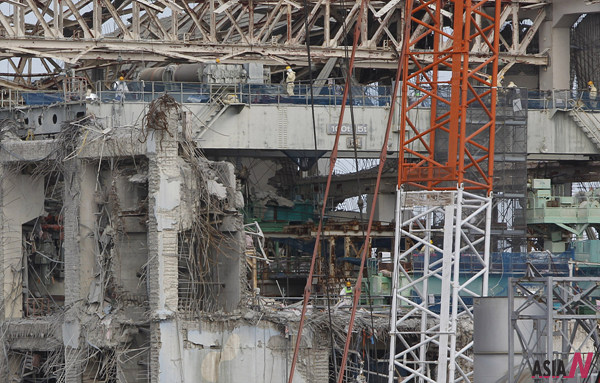Last nuclear reactor in western Japan shuts down for checkup

Workers wearing protective suits and masks work atop of No.4 reactor building of Tokyo Electric Power Co. (TEPCO)'s tsunami-crippled Fukushima Daiichi nuclear power plant in Fukushima prefecture, Japan, Feb. 20, 2012. (Photo: Xinhua>
The last nuclear reactor in western Japan operated by Kansai Electric Power Company has shut down for a regular checkup, leaving only two out of Japan’s total 54 commercial reactors operating, local press reported.
Kansai Electric Power Company said it completed the shut down procedures for the No. 3 reactor at the Takahama nuclear power plant in Fukui Prefecture early Tuesday.
Kansai Electric has 11 reactors and had produced half of its electricity by nuclear power before the quake-triggered disaster in northeastern Japan. With the shutdown of the last reactor, the company forecasts its supply capacity could fall short of peak demand by 8.8 percent by mid-March under one scenario.
Makoto Yagi, president of Kansai Electric, expressed at a press conference in Osaka Monday his regret over the current severe situation and said his company would make efforts to resume nuclear power generation.
“We will strive to restore trust by taking all possible measures to ensure the safety of nuclear power generation,” he said.
Now, only two of Japan’s 54 nuclear reactors are running. But those two in the central prefecture of Niigata and in the northern prefecture of Hokkaido will also be shut down by late April for checkups.
As no reactors have resumed operation after going through regular checkups since the Fukushima complex disaster last March, it is highly likely that Japan will have no operating nuclear reactors this spring.
The Japanese government will ultimately decide on whether to resume the reactors which are being checked, but it also needs the approval of the local governments where the reactors are located.
The local governments are urging the central government to set new safety standards based on lessons learned from the Fukushima disaster. <Xinhua>
























































